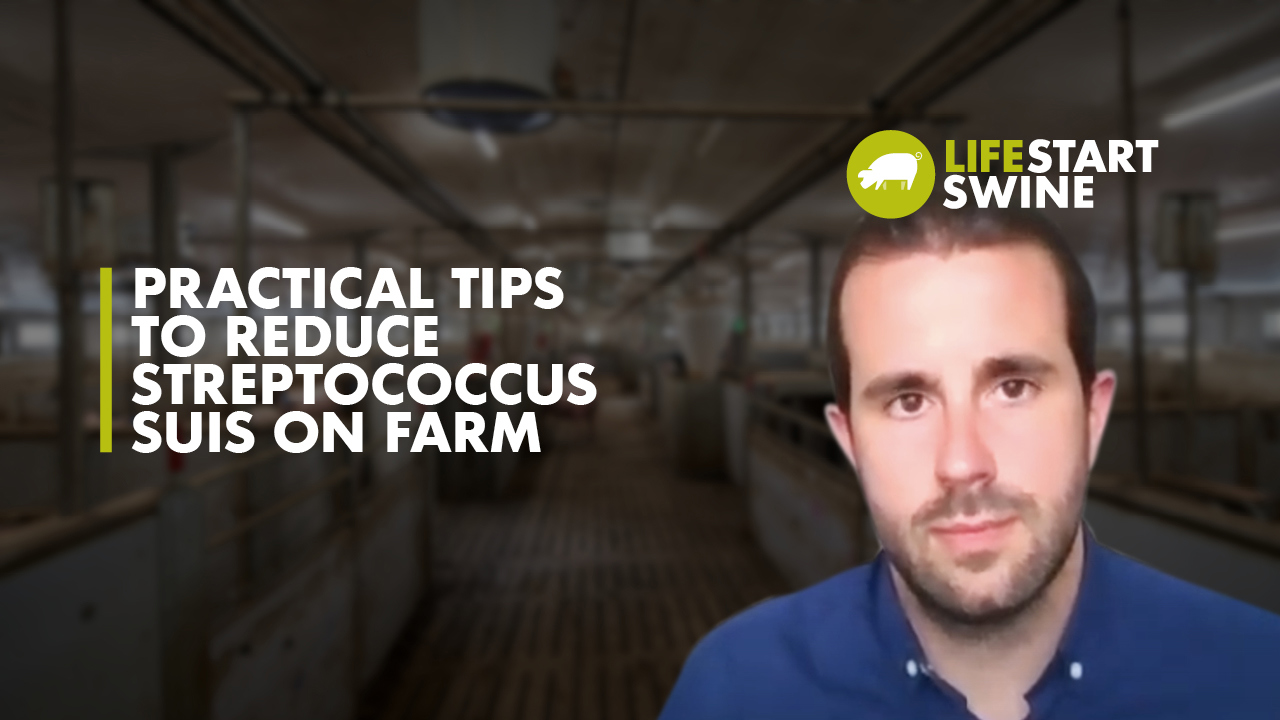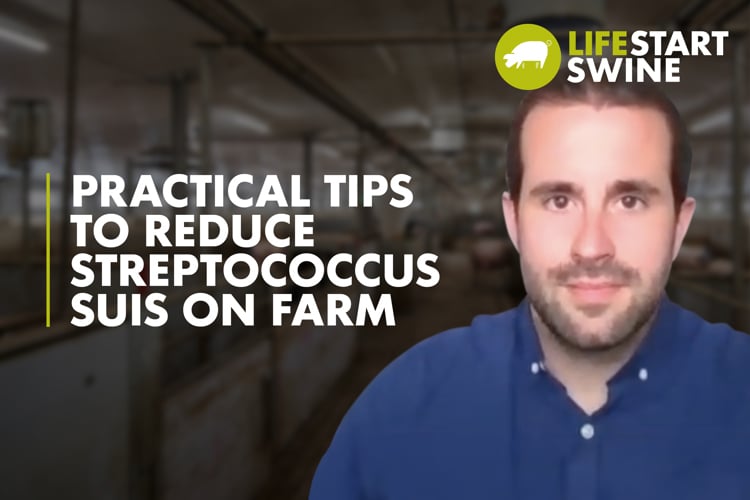
Dr. Lluís Fabà Camats is a veterinarian working as a swine researcher with Trouw Nutrition. Lluís has worked with Trouw Nutrition for three years, and part of his research is focused on Streptococcus suis (S. suis).

Given the reduction antibiotic use around the world, disease issues like S. suis seem to be more common on pig farms. Dr. Fabà describes the disease and shares tips to reduce S. suis on farm.
“Strep suis is a very prevalent bacteria, so almost every farm and every pig will have some level of the bacteria in their bodies,” said Dr. Fabà. “Colonization starts in the farrowing unit after birth, and transmission can happen anytime through the sucking phase to nursery phase. Transmission of S. suis doesn't mean the pigs will become sick and develop a disease; they need a trigger.”
Main trigger events can be co-infection, a lack of colostrum intake, or poor environmental conditions. Piglets also have a window of higher susceptibility to disease due to a lack of immune response which is usually day 18 of life until about 14 days post-weaning. During this window of time, piglets lose their material antibody protection gained from the sow and haven’t yet developed their own internal immune response. That’s when S. suis can colonize through the respiratory tract and possibly the gastrointestinal tract.
Once S. suis crosses into the bloodstream, it will colonize very rapidly in heart valves, brain tissue and joints, and it’s almost unstoppable, said Dr Fabà. Infected pigs will suffer from severe clinical signs and death unless they are treated with antibiotics.
“One important thing we can copy from humans is that once pigs get meningitis symptoms – they’ve lost a lot of water and minerals, we want to use anti-inflammatories, make sure they drink water and support them with minerals. These are strategies used in humans that we can use to help support pig health.”
Practical tips to reduce S. suis on farm
- Colostrum intake. Ensure that newborn pigs get about 250 grams of colostrum soon after birth. This will build maternal antibodies and protect the piglet from S. suis and other pathogens.
- Transition to weaning. Transitioning pigs from the nursery to wean phase is a vulnerable time. Make sure gut health and the environment is ideal. Get pigs on feed as soon as possible and confirm they have good quality air, proper ventilation and proper temperature.
- Avoid co-infections. If there are different diseases in the herd, avoid potential crossing of those diseases by trying not to mix pigs of different ages.
- Monitor for disease. Don’t confuse S. suis with other pathogens, so monitor, test and properly diagnose any diseases as soon as symptoms are identified. A quick diagnosis can make a big difference.



